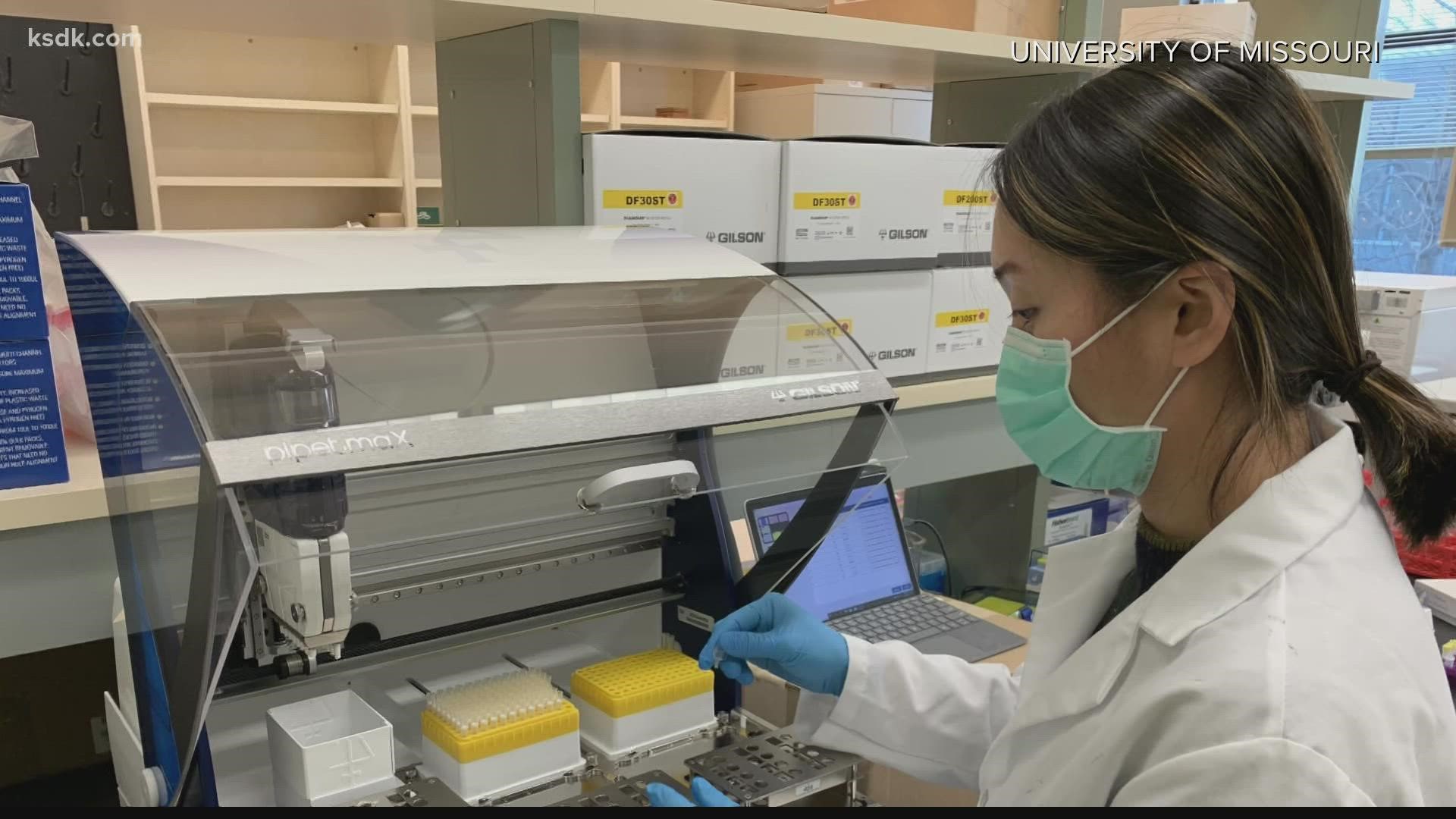ST. LOUIS — The hunt for COVID-19 variants has led some researchers to the gutters--literally.
"It doesn't matter if you've been vaccinated, it doesn't matter whether you have health insurance, it doesn't matter whether you believe in COVID. If you use the toilet, we're sampling you," said Professor Marc Johnson. He's a virologist and wastewater researcher with the University of Missouri School of Medicine.
The Missouri Sewershed Surveillance project collects samples that cover entire communities and tests them for traces of RNA that the COVID-19 virus leaves behind in the people who get sick.
Those traces end up going down the pipes, and that's where Johnson's team finds them.
It's faster than testing the COVID-19 genome for every person who gets a nose swab. The COVID traces in sewer water aren't contagious, and it's entirely anonymous.
Right now, this testing method is showing Johnson the way that the delta variant has taken over all across Missouri.
The Department of Health and Senior Services says that they were first notified of the delta variant in Missouri on May 8.
Usually, Johnson said, COVID-19 variants followed major transportation lines across the state, particularly the interstate highways. Delta was different, starting in Branson and then popping up at points halfway across the state.
"It's weird that it was, just, scattershot, across the state," said Johnson. "By the third week it had already sort of made it all over the place."
By June 14, the sewer test results showed the delta variant had made it to St. Louis.
The next day, the Illinois Department of Public Health reported its first cases of the delta variant.
While other variants have died out, Johnson says that Missouri still hasn't flattened the delta curve, and Illinois can expect to be dealing with the same wave soon.
"It started in Missouri at the beginning of May, and we haven't crested yet. That's three months, and Illinois is clearly behind us," said Johnson.
Illinois doesn't have a sewershed testing program. Instead, IDPH sequences the genomes of approximately 10.5% of samples it receives from laboratories each week, writes public information officer Melaney Arnold.
"The delta variant has been found in counties throughout Illinois and is the most common variant detected currently. The variants spread in the same manner as SARS-CoV-2 and the precautions people should take to prevent infection are the same – vaccination, masking, distancing," writes Arnold.
Before the end of July, the gamma and alpha variants were more prevalent in Illinois than the delta variant. In a month and a half, there have been at least 716 total delta variant cases identified in Illinois. By comparison, there have been at least 790 new alpha cases and 241 new gamma cases.
"Delta variant has been found in counties through Illinois with no geographic clustering," writes Arnold. "We are now seeing delta replacing what has been the most common strain. Alpha was replaced by gamma, and now delta has replaced gamma as the most common strain being detected in Illinois."
According to what he's learned from watching delta spread across Missouri, it should spread just as quickly in Illinois, even with the differences in vaccination and transmission rates between the two states.
"Sometimes it's more drawn out, but the end effect is usually the same, which is about two to four percent of the population gets infected and it doesn't seem to matter what the vaccine rate is," said Johnson.

